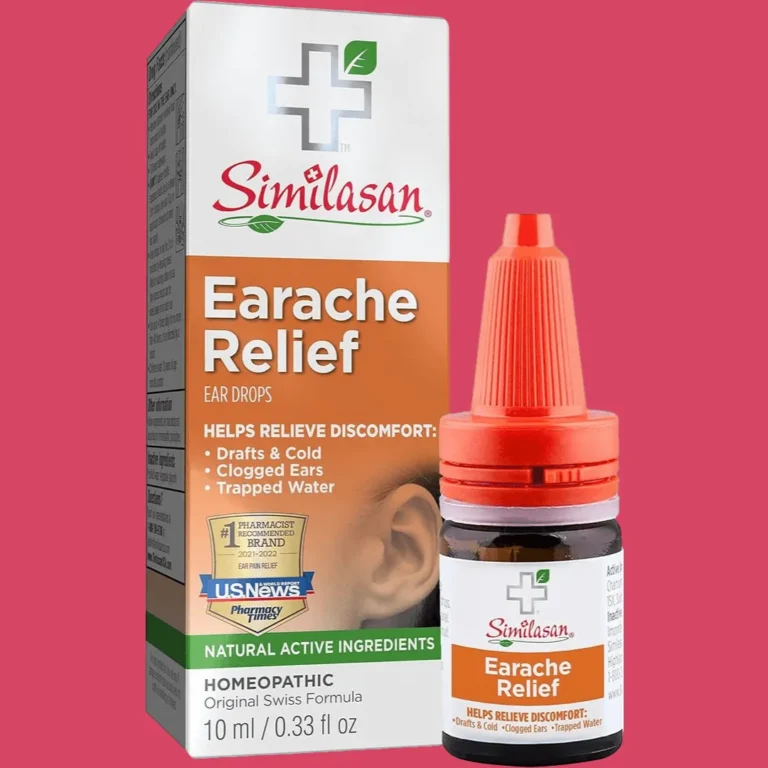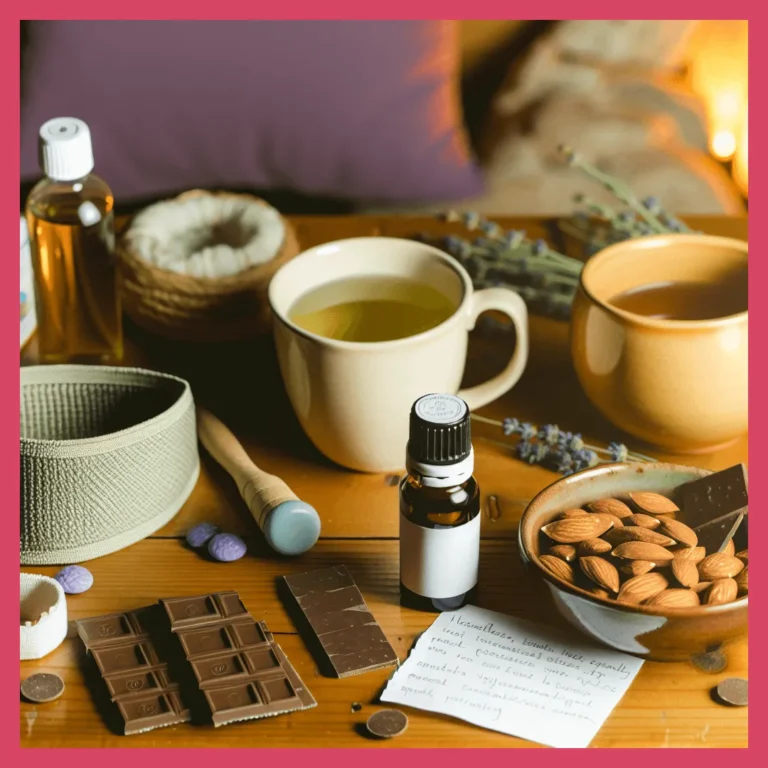Natural Health Remedy For Better Living
In an era where the push of a button can deliver medicine to our doorstep, the allure of a more authentic, earth-connected lifestyle beckons.
Natural Living isn’t just a trendy hashtag; it’s a centuries-old practice that is gaining modern-day momentum.
As we seek balance in our fast-paced lives, understanding how these age-old traditions can contribute to our well-being is both enlightening and essential.
Introducing “Natural Living: Tips and Remedies for Better Health,” a guide that offers holistic insights into enhancing your health through nature’s bounty.
Here, you will uncover the wisdom of natural living, lifestyle practices for optimal well-being, and the delicate dance between traditional and conventional medicine.
Explore the potency of plant-based remedies, the synergy of combining natural solutions with medical treatments, and the empirical journey of scientific research validating the power of Mother Nature’s medicine cabinet.
Dive into the heart of health-conscious living with us.
Table of Contents Natural Health Remedy For Better Living
What is Natural Living?
Natural living represents a harmonious lifestyle approach, firmly grounded in the fundamental belief that aligning with nature and its rhythms can yield a healthier and more fulfilling life.
It’s a conscious return to the old-fashioned ways of living—before the rise of heavy industrialization and the deluge of chemicals and synthetic products into our daily lives.
Embracing natural living isn’t about shunning all modern conveniences; it’s about finding a balance where these conveniences do not detract from our well-being but support it instead.
This lifestyle focuses on reducing stress, eliminating toxins, and minimizing our chemical exposure through thoughtful choices in what we consume, how we maintain our homes, and the way we interact with our environment.
It promotes the adoption of traditional methods, some of which have been practiced for centuries, for maintaining health and treating ailments.
These practices include, but are not limited to, using herbal remedies, favoring organic and non-processed foods, and implementing sustainable living solutions.
Moreover, natural living supports the idea of being more in tune with the outdoors—spending time in nature to nurture our mental health, tap into the restorative effects of green spaces, and lower the chances of developing depressive symptoms.
The holistic benefits of a lifestyle that embraces natural elements are extensive.
They manifest in enhanced physical immunity, reduced levels of stress, and a vigorous combat against various diseases.
In essence, natural living is a multidimensional pursuit, integrating body, mind, and environment in a quest for a richer and purer quality of life.
Understanding the Concept of Natural Living
Embarking on the journey of natural living entails adopting a naturopathic philosophy that values wellness from a comprehensive perspective.
This includes an appreciation for a wholesome diet, adequate hydration with clean water, generous sunlight exposure, regular physical activity, and effective stress management.
The goal is to create and maintain balance within the body’s systems, enabling it to function optimally and resist illness naturally.
Central to this concept are alternative practices such as acupuncture and herbal remedies, which have been used for ages to bolster immunity, alleviate stress, and treat various health conditions.
Interactions with elements of nature like greenery have been scientifically linked to reduced depression risk, improved focus, and enhanced sleep quality.
Naturopathic medicine, thus, is not just about preventing or curing disease—it’s about fostering an environment where healing can take place more efficiently using natural agents like air, water, light, and plant-based products.
Moreover, some complementary therapies such as acupuncture, yoga, and meditation have undergone scientific scrutiny and have been recognized for their safety and efficacy.
These practices not only complement natural living but are also increasingly integrated into more conventional wellness plans, suggesting a bridge between traditional and modern medicinal approaches.
Benefits of Embracing a Natural Lifestyle
Reaping the benefits of a natural lifestyle begins with regular immersion in natural settings.
This simple practice can significantly diminish depression risks and sharpen mental acuity.
Moreover, exposure to the rhythm of natural light sources can have a profound effect on sleep patterns, aligning our circadian rhythms to improve overall sleep quality.
For children, regular play in green spaces can have enduring positive impacts on their cognitive and emotional development, potentially mitigating the risk of developing mental disorders later in life.
The embodiment of natural living through aromatherapy, dietary mindfulness, and active outdoor engagements cultivates a sense of well-being and contentment.
A deliberate incorporation of elements like water therapy, herbal nutrition, and a conscious association with our food sources fosters a genuine connection with nature, which in turn can result in a more harmonious and disease-resistant existence.
Adopting such a lifestyle doesn’t mean one must renounce modern advancements but rather select and incorporate those in ways that promote health, sustainability, and a deeper appreciation for the natural world.
It is about nurturing a sanctuary for ourselves—a space where physical, mental, and emotional health can flourish through the simplest acts of living naturally.
Healthy Lifestyle Practices
Embracing healthy lifestyle practices can lead to profound changes in our overall well-being.
Renowned for his groundbreaking work, Dr. Dean Ornish has demonstrated that heart disease can be reversed through comprehensive lifestyle changes, including a balanced diet and regular exercise.
Such changes can also impact gene expression, potentially reducing the risk of chronic diseases.
Complementary and alternative medicine (CAM), including acupuncture and herbal remedies, is gaining widespread acceptance as a means of improving health, managing conditions, and enhancing recovery.
Naturopathy further bolsters this approach, emphasizing the importance of natural elements like clean water and sunlight in conjunction with stress management and physical activity to maintain health and prevent illness.
Importance of a Healthy Diet
A nutritious diet is the cornerstone of a healthy lifestyle, providing the energy our bodies need while fostering tissue regeneration.
It’s vital not only for maintaining vitality but also for detoxifying the body and mitigating adverse effects from conventional medical treatments.
Fermented foods like sauerkraut present an example of traditional dietary wisdom that aligns with the modern understanding of health by reducing inflammation and supporting gut health.
As we increasingly adopt practices from traditional cultures, the importance of a healthy diet rich in probiotics and other beneficial nutrients becomes even more evident.
Incorporating Exercise into Your Daily Routine
Physical activity, particularly in natural environments, offers myriad benefits.
Studies imply that those who exercise outdoors generally engage in longer and more intense workouts.
Proximity to green spaces has been associated with reduced mental distress, increased longevity, and enhanced physical wellness.
Even brief outdoor activities, such as basking in sunlight or enjoying a peaceful walk, can have significant health advantages.
It’s also observed that the presence of water in green spaces amplifies these positive effects on health, offering an invitation to integrate outdoor exercise into our daily routines smoothly.
The Significance of Quality Sleep
Good quality sleep is fundamental to a robust immune system, especially during the seasons when colds and flu prevail.
Sufficient rest can bolster our body’s natural defenses against infections by supporting immune function and aiding in the recovery process.
Sleep is an essential component of our body’s ability to withstand various pathogens, making it an indispensable element of a healthy lifestyle.
Stress Management Techniques for a Healthier Life
In today’s fast-paced world, effectively managing stress is critical for maintaining physical and emotional health.
Techniques such as yoga, meditation, and acupuncture are highly recommended by health professionals for relaxation and reduction of stress.
Naturopathic doctors, offering personalized health consultations, may suggest a variety of non-invasive approaches, from tailored nutrition advice and herbal medicine to therapeutic counseling.
These disparate methods coalesce into a comprehensive plan targeting both the causes and symptoms of stress, underscoring its pivotal place in our journey toward a healthier lifestyle.
Traditional Medicine vs.
Conventional Medicine
Traditional medicine, encompassing practices like herbal medicine, has roots in various ancient cultures, including the Chinese, Egyptian, African, and Native American civilizations.
These practices use natural elements and plant-based remedies, believing in the body’s innate ability to heal.
Different parts of plants, such as seeds, berries, roots, leaves, bark, or flowers, are employed for their therapeutic properties.
In contrast, conventional medicine, which is sometimes referred to as allopathic, biomedicine, Western medicine, or even orthodox medicine, is the dominant healthcare system in the modern world.
It involves a scientifically-based approach to diagnosing and treating symptoms and diseases, using drugs, radiation, surgery, and other technologies.
It is practiced by health professionals with medical degrees, like M.
D.
(Doctor of Medicine) or D.
O.
(Doctor of Osteopathic Medicine), and involves a wide range of other healthcare professionals such as nurses, pharmacists, and therapists.
Exploring the differences between traditional and conventional medicine
Conventional medicine often emphasizes the treatment of specific health conditions and diseases, generally relying on pharmaceuticals and modern medical treatments.
Its hallmark is the extensive use of clinical studies and standardization in medical care.
This approach has led to significant advancements in medical science, including the development of vaccines, antibiotics, and surgical techniques.
On the other hand, traditional medicine includes a broad range of practices and ideas, including herbal medicines, which have been validated increasingly through rigorous analysis and clinical research.
One of the key differences is that traditional approaches often include an understanding of the healing properties inherent in nature and the belief that maintaining harmony within one’s environment is essential to health.
Understanding the role of medical doctors in conventional medicine
Within the framework of conventional medicine, medical doctors (MDs) and doctors of osteopathic medicine (DOs) diagnose and treat diseases primarily through drugs, radiation, or surgery.
These professionals undergo extensive training and are required to adhere to standardized protocols to deliver medical care.
Conventional medicine is also characterized by a focus on acute care, managing emergencies and illnesses through evidence-based practices.
The focus in conventional medicine is often on treating the disease rather than the individual as a whole.
However, many practitioners are now recognizing the importance of taking a broader view and are incorporating elements of CAM into their practices where evidence supports their effectiveness and safety.
The growing popularity of alternative therapies and complementary therapies
Alternative therapies and complementary therapies have seen a surge in popularity as people search for more holistic approaches to health and wellness.
These may include therapeutic exercises, mind-body approaches like meditation and yoga, and treatments like acupuncture, which has been shown to provide short-term relief for conditions such as lower back pain, neck pain, knee pain, and osteoarthritis.
Government agencies such as the National Center for Complementary and Integrative “Health (NCCIH)” are responding to this interest by funding clinical trials to assess the effectiveness of these treatments.
While many CAM therapies are not currently covered by health insurance, the growing body of scientific evidence in favor of their effectiveness may change this landscape in the future.
This cultural shift towards a more holistic, patient-centered approach to healthcare suggests a future where integrative medicine – a combination of conventional medical care with effective CAM practices – becomes the norm.
Natural Remedies and Herbal Medicines
Natural remedies and herbal medicines provide a holistic approach to managing health and treating ailments.
Embracing practices that range from ancient herbal teas to modern essential oils, these remedies prioritize natural elements to promote healing and wellness.
Acupuncture, a staple of traditional Chinese medicine, leverages the body’s energy pathways to address issues such as chronic pain, anxiety, and insomnia, building on the theme of non-invasive treatment.
The scope of natural remedies is vast, encompassing innovative tools like fitness apps to track physical activity and instructional videos on creating homemade natural cosmetics, such as hydrating lip gloss.
Cognitive research corroborates the significance of integrating holistic practices like yoga, meditation, and mindfulness into daily routines.
These strategies have shown not only to enhance mental clarity and stress management but also to contribute tangibly to physical health, with documented cases of improved heart function and indicators of other health conditions.
The applications of herbal remedies extend to digital platforms as well, with mobile apps highlighting the capabilities of plant-based treatments like Aloe Vera and Golden Milk, and guiding users through yoga sequences and essential oil use — all supporting a balanced and harmonious lifestyle.
Exploring the therapeutic properties of medicinal plants
Lavender, celebrated throughout history for its calming fragrance, serves as more than just a pleasant scent.
This versatile herb embodies an array of therapeutic benefits, including promoting restful sleep, alleviating different types of pain, and even offering neuroprotective effects that can improve memory and mood.
Deepening our understanding of lavender, scientific investigations reveal anticonvulsant, antioxidant, anti-inflammatory, and antimicrobial activities, positioning this herb as a multifunctional player in the arena of medicinal plants.
This aromatic powerhouse is available in several forms — from dried herb for infusions to concentrated essential oils.
Its essential oil, in particular, has been acknowledged for pain-relieving properties, providing potential relief from ailments such as arthritis, headaches, and menstrual discomfort.
Lavender’s calming attributes also shine in mental health, delivering anxiety relief and sleep enhancement that culminate in an improved sense of well-being.
Popular herbs for various health conditions
Around the world, herbal medicines stand as a primary health resource, with an estimated 80% of the global population utilizing them for healthcare needs.
In places like Germany, the practice is not only popular but institutionally supported, with a significant proportion of physicians prescribing plant-based medicines.
In the United States, a shift is evident as individuals, wary of expensive prescription medications, turn to herbs as a cost-effective alternative.
Science remains intrigued by the dynamic composition of herbs, wherein multiple constituents synergize for therapeutic effects.
The challenge lies in pinpointing the exact elements and interactions responsible for healing.
Contributing factors to an herb’s potency — including its growing conditions, harvest timing, and subsequent processing — underscore the nuanced nature of herbal medicine, highlighting the importance of understanding the complexities of their use in treating health conditions.
Examining the use of herbal supplements and dietary supplements for better health
The realm of herbal and dietary supplements presents a promising adjunct to conventional healthcare.
Echinacea, a popular supplement, boasts compelling statistics: it can reduce the common cold incidence by a striking 58% and shorten its duration by about a day and a half.
However, the intersection of supplements with pharmaceuticals can be delicate, necessitating critical awareness of potential interactions, especially for individuals with specific health conditions or allergies.
The benefit of standardized herbal supplements lies in their measured consistency, allowing for doses reflective of those tested in clinical trials.
While often presenting a lower risk of side effects compared to synthetic medications, a blanket presumption of safety is ill-advised.
Vigilance and consultation with healthcare providers are crucial, as ‘natural’ does not automatically mean ‘safe for everyone.
’
The potential benefits of olive oils for medicinal purposes
In the world of natural health, olive oil enjoys its own spotlight for its medicinal utility, particularly as a conduit for essential oils.
When mixing concoctions for health uses such as easing anxiety or enhancing cognitive function, rosemary oil diluted in olive oil can prove to be a potent combination.
Experts recommend a blend of three to five drops of essential oil per ounce of olive oil, ensuring a safe and effective dilution level.
Olive oil’s naturally unsaturated fats enhance the absorption of health-giving properties from essential oils like rosemary, providing a dual approach to health management.
Ideal for therapeutic uses, olive oil stands out as a versatile and body-friendly carrier oil, contributing to a healthier lifestyle with each application.
Complementing Medical Treatment with Natural Remedies
The fusion of herbal medicine and conventional medical treatment can offer a multifaceted approach to managing health conditions.
With a wide spectrum of natural remedies available, they target various ailments such as allergies, arthritis, migraines, and menopausal symptoms.
It’s becoming increasingly common for healthcare providers to appreciate the value of herbal supplements and advise their use under careful guidance to prevent adverse interactions with prescription medicine.
In the evolving field of integrative medicine, conventional care is being enhanced with CAM (complementary and alternative medicine) practices that have proven their safety and effectiveness through rigorous scientific evaluation.
Patients undergoing cancer treatments, for instance, often turn to natural remedies to alleviate the harsh side effects like nausea, pain, and fatigue.
CAM practices including massage and acupuncture not only offer physical relief but also strive to support the mental and spiritual well-being of individuals.
This holistic approach to health care, when effectively incorporated, enriches the standard medical treatments and reinforces the patient’s overall treatment protocol.
Understanding the role of natural remedies alongside medical care
Navigating the dynamics between natural remedies and conventional medical treatment requires a balanced understanding.
Naturopathic medicine, which focuses on harnessing the healing power of nature, can impeccably complement traditional medical care, especially for chronic conditions and to manage treatment side effects.
To ensure comprehensive care, it is imperative for patients to communicate openly with both their medical and naturopathic doctors about all their treatments.
There exists a distinction between complementary medicine, which is used in conjunction with conventional treatments, and alternative medicine that stands in for standard medical care.
For example, acupuncture may be used alongside cancer therapy to lessen discomfort, whereas a special diet might be adopted in the place of prescribed cancer drugs.
With herbal supplements becoming increasingly mainstream in the U.
S.
, safety and efficacy must remain a top priority, calling for an informed dialogue between patients and healthcare providers about potential risks, particularly regarding drug interactions.
Benefits of combining natural remedies with conventional treatments
Pairing naturopathic remedies with conventional medicine can yield significant benefits in managing persistent and complex health issues.
Conditions that may not respond satisfactorily to conventional treatments alone often find a valuable ally in natural therapies.
Coordination between various healthcare practitioners ensures that patients receive integrated care that’s aware of all medicinal interactions.
Natural remedies can also play a supportive role in softening the side effects of aggressive medical treatments such as chemotherapy.
Adopting a holistic viewpoint, it’s vital to evaluate the compatibility of natural remedies with ongoing medications to prevent negative interactions.
While home remedies are generally deemed safe, correct application is key to evading potential adverse effects.
This serves to underscore the importance of consulting with healthcare professionals for optimal health management strategies.
Seeking guidance from healthcare providers on integrating natural remedies
For those facing illnesses like cancer, CAM offers a means to cope with treatment-related side effects and to explore additional therapeutic options.
Patients and providers together can explore the diverse landscape of integrative medicine, which marries conventional practices with scientifically validated CAM strategies.
Healthcare professionals play a pivotal role in ensuring a safe integration of herbal supplements, such as Echinacea, St.
John’s wort, and Ginseng, into patients’ health regimens.
They consider critical factors such as plant species, habitat, and processing methods when recommending herbal medicines.
Consequently, to safely leverage the potential benefits of natural remedies, patients must engage healthcare providers who are knowledgeable in both conventional and alternative medicine disciplines.
Such guidance will navigate potential contraindications and interactions with established treatment plans, ensuring that natural remedies serve as complementary allies in a patient’s journey to wellness.
Managing Common Health Conditions Naturally
For centuries, herbal supplements have played a crucial role in the maintenance of health and the treatment of ailments.
In the United States, herbal remedies like Echinacea, St.
John’s wort, and Ginkgo biloba are commonly used for a variety of health purposes.
These natural options cater to a range of conditions, including allergies, arthritis, migraines, and even supporting cancer care.
Healthcare providers take several factors into account when recommending herbal medicine.
They consider the species of the plant, its habitat, how it’s been processed, and potential contaminants that could alter its effects or cause harm.
While herbal remedies may act more slowly compared to pharmaceutical drugs, they have the potential to be highly beneficial for persistent conditions such as insomnia, acne, and toothaches, particularly when a gentler, sustained approach is preferred.
However, it’s paramount to consult with a trained provider before embarking on a course of herbal supplements.
This is not only to ensure their appropriateness for your specific condition but also to avoid potentially dangerous interactions with prescription medications you may be taking.
Working in conjunction with healthcare professionals ensures that natural health remedies are used safely and effectively within the broader context of medical care.
Herbal Remedies for Sore Throats and Colds
The discomfort of sore throats and the common cold have long been alleviated by the use of herbal remedies.
These natural substances come in a variety of forms, from soothing teas to potent syrups, and even as topical treatments.
Syrups, which are concentrated extracts of herbs, have been traditionally used to quell coughs and ease throat irritation.
For those seeking an external application, herbal oils extracted from plant sources can be incorporated into massage rubs or applied in ointments and creams to offer relief.
Tinctures and liquid extracts dissolved in alcohol, water, or glycerol can deliver a powerful dose of active ingredients when used as directed for sore throat relief.
For a concentrated herbal impact, dry extracts in tablet, capsule, or lozenge form are convenient to use and can be especially potent in addressing both sore throat and cold symptoms.
Natural Approaches to Joint Pain and Inflammation
The natural world offers a treasure trove of remedies for joint pain and inflammation.
One such gem is turmeric, revered for its curcumin content, which has been found to significantly reduce joint pain in conditions such as arthritis.
In fact, a mere 100 milligrams daily of turmeric extract can bring about a noticeable decrease in discomfort.
Essential oils, including lavender and peppermint, and herbs like clove and feverfew, serve as natural analgesics to combat joint pain.
Meanwhile, ginger works as an effective anti-inflammatory, reducing inflammation without the potential risks associated with non-steroidal anti-inflammatory drugs (NSAIDs).
Beyond these, alternative therapies such as acupuncture, yoga, and mindfulness meditation offer natural ways to tackle joint pain and inflammation, while simple home solutions like heat and cold treatments, coupled with relaxation techniques and breathing exercises, provide swift and non-pharmacological pain relief.
Promoting Heart Health through Healthier Lifestyle Choices
A cornerstone of heart health is a healthy lifestyle characterized by a balanced diet incorporating fruits, vegetables, legumes, nuts, and whole grains.
Such a diet can significantly lower the risk of heart disease and other noncommunicable diseases like diabetes and stroke.
Cutting down on salt and sugar intake is another key factor in reducing the chance of high blood pressure, thereby decreasing the likelihood of heart complications.
Dr.
Dean Ornish’s holistic research illustrates the profound benefits of lifestyle choices on heart health.
His work demonstrates how adopting a comprehensive approach focused on diet, stress reduction, and exercise can not only reverse heart disease by improving blood flow and unclogging arteries but also positively influence gene expression related to diseases including heart disease, cancer, and diabetes.
Beyond these dietary shifts, incorporating practices like meditation and yoga into your daily routine can boost immunity, alleviate stress, and stave off various health issues, laying the foundation for a strong heart and a healthier life.
Natural Remedies for Chronic Diseases
When tackling the complex arena of chronic diseases, combining conventional medical treatments with naturopathic remedies might enhance patient outcomes.
Herbal supplements, for example, can be a valuable tool for managing side effects of treatments like chemotherapy, offering relief with potentially fewer side effects than synthetic medications.
Yet, caution is necessary.
Some herbs, such as St.
John’s wort, may bring about adverse effects such as increased sensitivity to sunlight or allergic reactions.
Moreover, while beta-blockers at low doses could bring temporary respite from chronic pain in conditions like fibromyalgia, medicinal cannabis and cannabidiol (CBD) are being increasingly utilized for pain management.
Despite their potential, these treatments must be approached with awareness of possible side effects and the need to navigate the complexities of legality in certain jurisdictions.
Science and Research in Natural Remedies
The scientific exploration of natural remedies stands as a crucial bridge between traditional medicine and modern healthcare.
While some popular herbs boast a rich database of research, others are less documented, signaling the need for more comprehensive studies.
For example, the benefits of Echinacea, which is used by many to ward off the common cold, are supported by 14 clinical studies indicating that the supplement may reduce the chance of catching a cold by 58% and potentially shorten its duration by approximately 1.
4 days.
Utilizing herbs properly can offer treatment alternatives that come with fewer potential side effects as compared to conventional medications.
Nonetheless, the importance of standardization cannot be overstressed.
Guaranteeing that herbal supplements deliver the appropriate dosage is paramount to replicate the effects seen in clinical trials reliably.
While home remedies are widely perceived as safe, they can yield adverse effects if misused or if an individual has specific health issues, underscoring the need for professional medical consultation.
Exploring scientific studies on the effectiveness of natural remedies
The effectiveness of natural remedies is often predicated on empirical evidence and scientific investigations.
Not all herbal remedies, however, rest on a well-established foundation of data.
Ensuring that natural remedies are subjected to rigorous scientific scrutiny is essential to understand their full scope of benefits as well as any possible side effects.
Divergences often appear, as single studies or trials might not be universally applicable due to the variability in individual responses.
Traditional remedies, handed down through generations, may offer solace and alleviate symptoms for many, but they are not guaranteed to work for everyone.
As such, an inquiry into, and consultation with, health professionals prior to utilizing natural remedies is advisable.
Patients should aim to use home treatments judiciously, particularly those currently on other medications or with existing health conditions, to avoid unintended consequences.
Understanding the importance of clinical trials for validating natural therapies
Clinical trials play a fundamental role in ascertaining the validity and efficacy of complementary and alternative medicine (CAM) treatments.
Institutions like the National Cancer Institute (NCI) and the National Center for Complementary and Integrative Health (NCCIH) sponsor research to evaluate these therapies, either in isolation or alongside conventional treatments.
Such trials provide invaluable insights into the potential of alternative therapies when measured against established medical treatments.
The research conducted by organizations such as NCI and NCCIH is designed to uphold the integrity of CAM treatments through scientific rigor, fostering informed decisions by patients and healthcare providers.
To further support this mission, these institutes provide resources for accessing detailed information on CAM therapies and practitioners.
By promoting an understanding of these options through credible clinical trials, the integration of natural remedies in medical treatment can progress with confidence and clarity.







